第17章 CHAPTER 2(2)
The two are called "one person in law," for the purpose of inferringthat whatever is hers is his, but the parallel inference is never drawn thatwhatever is his is hers; the maxim is not applied against the man, exceptto make him responsible to third parties for her acts, as a master is forthe acts of his slaves or of his cattle. I am far from pretending that wivesare in general no better treated than slaves; but no slave is a slave tothe same lengths, and in so full a sense of the word, as a wife is. Hardlyany slave, except one immediately attached to the master's person, is a slaveat all hours and all minutes; in general he has, like a soldier, his fixedtask, and when it is done, or when he is off duty, he disposes, within certainlimits, of his own time, and has a family life into which the master rarelyintrudes. "Uncle Tom" under his first master had his own life inhis "cabin," almost as much as any man whose work takes him awayfrom home, is able to have in his own family. But it cannot be so with thewife. Above all, a female slave has (in Christian countries) an admittedright, and is considered under a moral obligation, to refuse to her masterthe last familiarity. Not so the wife: however brutal a tyrant she may unfortunatelybe chained to -- though she may know that he hates her, though it may behis daily pleasure to torture her, and though she may feel it impossiblenot to loathe him -- he can claim from her and enforce the lowest degradationof a human being, that of being made the instrument of an animal functioncontrary to her inclinations. While she is held in this worst descriptionof slavery as to her own person, what is her position in regard to the childrenin whom she and her master have a joint interest? They are by law his children.
He alone has any legal rights over them. Not one act can she do towards orin relation to them, except by delegation from him. Even after he is deadshe is not their legal guardian, unless he by will has made her so. He couldeven send them away from her, and deprive her of the means of seeing or correspondingwith them, until this power was in some degree restricted by Serjeant Talfourd'sAct. This is her legal state. And from this state she has no means of withdrawingherself. If she leaves her husband, she can take nothing with her, neitherher children nor anything which is rightfully her own. If he chooses, hecan compel her to return, by law, or by physical force; or he may contenthimself with seizing for his own use anything which she may earn, or whichmay be given to her by her relations. It is only legal separation by a decreeof a court of justice, which entitles her to live apart, without being forcedback into the custody of an exasperated jailer -- or which empowers her toapply any earnings to her own use, without fear that a man whom perhaps shehas not seen for twenty years will pounce upon her some day and carry alloff. This legal separation, until lately, the courts of justice would onlygive at an expense which made it inaccessible to anyone out of the higherranks. Even now it is only given in cases of desertion, or of the extremeof cruelty; and yet complaints are made every day that it is granted tooeasily. Surely, if a woman is denied any lot in life but that of being thepersonal body-servant of a despot, and is dependent for everything upon thechance of finding one who may be disposed to make a favourite of her insteadof merely a drudge, it is a very cruel aggravation of her fate that she shouldbe allowed to try this chance only once. The natural sequel and corollaryfrom this state of things would be, that since her all in life depends uponobtaining a good master, she should be allowed to change again and againuntil she finds one. I am not saying that she ought to be allowed this privilege.
That is a totally different consideration. The question of divorce, in thesense involving liberty of remarriage, is one into which it is foreign tomy purpose to enter. All I now say is, that to those to whom nothing butservitude is allowed, the free choice of servitude is the only, though amost insufficient, alleviation. Its refusal completes the assimilation ofthe wife to the slave -- and the slave under not the mildest form of slavery: for in some slave codes the slave could, under certain circumstances of illusage, legally compel the master to sell him. But no amount of ill usage,without adultery superadded, will in England free a wife from her tormentor.